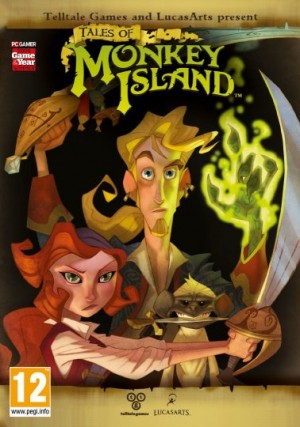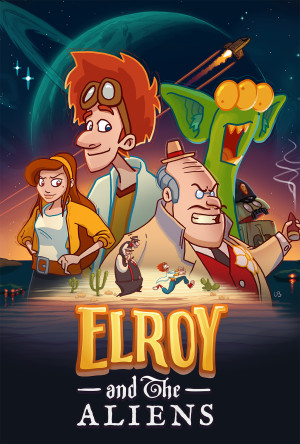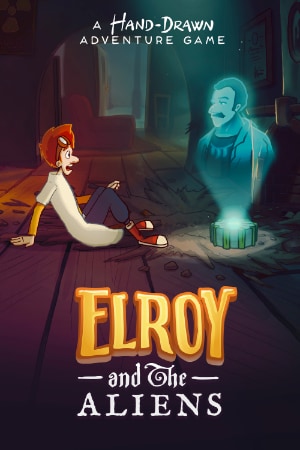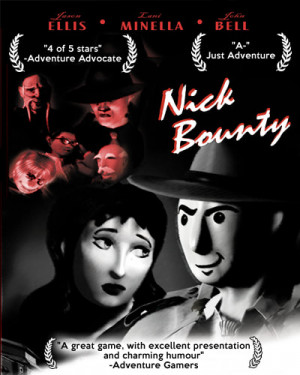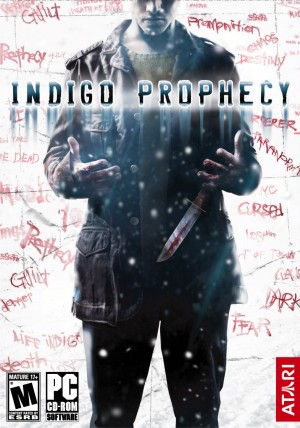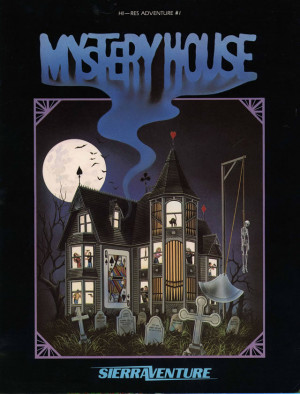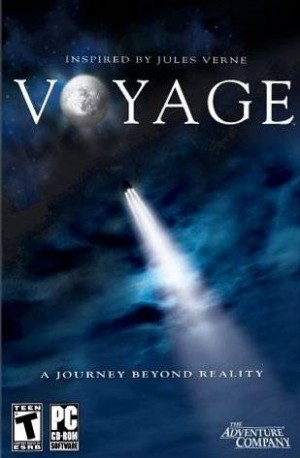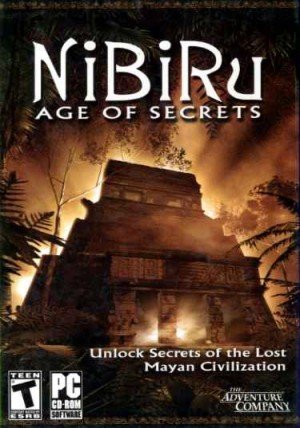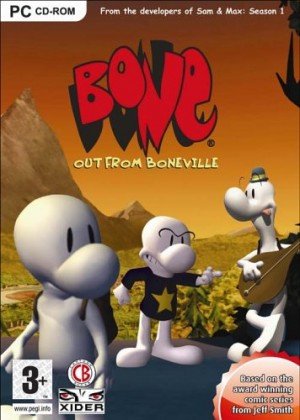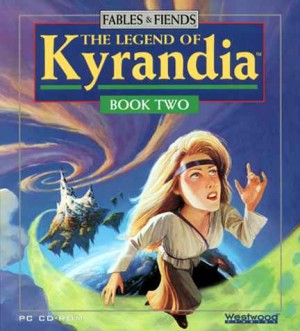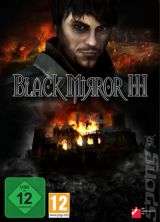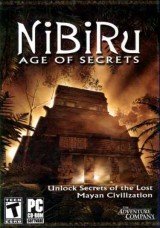Review for Tales of Monkey Island: Chapter 5 - Rise of the Pirate God
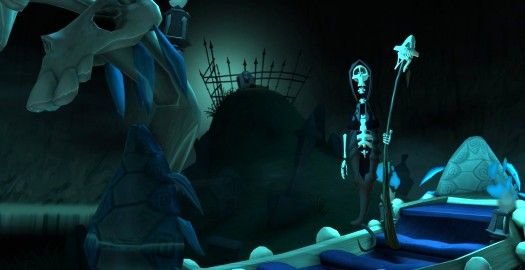
Telltale Games have long since established themselves as the masters of modern episodic gaming, seemingly the only developer who can understand and fulfill the basic tenets of an episodic format in the adventure (or any other) genre. Having cut their teeth on less established gaming franchises, Tales of Monkey Island: Rise of the Pirate God represents the conclusion of what has been by far the most anticipated, most recognized, and most closely scrutinized of any Telltale series to date—and when the dust clears and the credits and epilogue have rolled, it can only be considered a great success.
It’s difficult to get into specifics about the finale’s story without spoiling some surprises unnecessarily; obviously the cliffhanger in the previous episode leaves a great deal of uncertainty as to where Guybrush’s journey is going, but suffice to say that the game begins with Guybrush in a location and situation that is unique to the entire legend of Monkey Island to date. The story, of course, is ultimately leading to the grand-scale hero vs. villain confrontation that everyone playing these episodes has been anticipating all along. In doing so, some of the more amusing supporting characters from all the episodes make worthwhile return appearances and a couple of locations are re-used for some continuity. However, due to the world-changing events of the game, the setting is almost 100% original (or at least surreally reimagined).
I have yet to find a Telltale game that couldn’t be described as technically superior to its contemporaries, and there is no exception here. Although the visuals this time are, by necessity, not as colorful and vibrant as other episodes, the animation is as fantastic as ever and the facial animation during key character moments is really impressive. It’s also easy to notice some improvement in the way the camera is handled—the jerky confusion of Launch of the Screaming Narwhal’s opening seems like so long ago. As the game takes on a more ambitious and epic tone, the music backs it up expertly with some truly great dynamic scores that enhance the urgency as the final confrontation unfolds. The voice audio production is also top-notch, with some great evil voice effects for the villains, and the return of Earl Boen (of Curse of Monkey Island fame) as the voice of the evil LeChuck will be a welcome treat for series fans.
The uneven puzzle design and mechanics that have afflicted earlier episodes are unfortunately still present. This time, the puzzles definitely err on the easier side and the game’s play time was quite a bit shorter for me than the previous episode’s as a result. In addition, the execution of the puzzles is sometimes a bit irritating, particularly when walking back and forth between the same two areas over and over again. One later puzzle, which is a response to the large spell puzzle from the fourth episode, slips into the mechanics of “go back to every room and pick up everything that’s not nailed down and you’ll figure out the use for the items later” when it seems that with some extra creativity, such an obvious approach could have been avoided.
In addition to issues with the puzzles, it’s tough not to take note of the game’s very subdued tone. This is understandable given the constricted setting and the surrounding events, but there is not a great deal of urgency or energy in the early stages of the game until some key cutscenes set the story on its final course. It’s a little disappointing that the game begins so quietly, coming off of such a momentous event that ended last month’s episode.
Ultimately though, it’s tough to put too much focus on the weaknesses of the game’s early and middle parts, because the ending of Rise of the Pirate God gets everything right. From the moment the game’s multi-step penultimate puzzle is solved and the final confrontation sails into view, the game moves forward at rocket speed, through a brilliant final puzzle sequence that is expertly directed and animated, involving many moving parts yet making perfect sense and never disorienting or confusing. Besides being a smart puzzle in its own right, it is also a moment of epic, majestic drama, preceded by an essential and sudden character turn, and then concluded with an extremely poignant and dare I say touching moment that sets up the game’s true ending. The entire final ten minutes had me emotionally connected with this game like I have never connected with a Telltale game before—and as a bonus, the epilogue ends on an absolutely perfect note, addressing the fates of the remaining essential characters and setting up an all-but-guaranteed second season.
The conclusion emphasizes how good those who oversaw this season were at getting the important things right. Guybrush Threepwood, here more than any other episode, feels like a genuine hero; LeChuck is finally a devious and truly credible villain; Elaine is the intelligent love interest who, of course, is indispensable to Guybrush’s victory as the story plays out; and the final conflict feels grand and epic in a way that the season as a whole has struggled to reach at times. I can’t imagine any fan not walking away from this episode feeling exhilarated and rewarded—and already excited for the series’ future.
Inasmuch as I weight the final portions so heavily in judging this episode, it’s also fair to view this episode not as an individual game (because clearly no one should ever play it as such), but as a summation of the series itself. In consideration of the entire Tales of Monkey Island season, the final episode really is as appropriate a conclusion as you could hope for. The epic scope of the season’s events is heavily emphasized here, leading you to walk away feeling like you haven’t just played a cute little Monkey Island side-story—you’ve played the true Monkey Island 5 in five parts. That is ultimately a very rewarding feeling for fans of the MI mythos.
I have been critical of some of the individual episodes this season, particularly the uneven design and tone issues (plus the blundering interface that I will never be convinced was a good idea), but like most great adventures, the final chapter and the full understanding of how events have played out puts a more positive spin on all the previous chapters as well. Whatever the minor failings may have been, Tales of Monkey Island as an entire work has been a comprehensive and grand story on a scale that might be able to compete with any previous Monkey Island game—not a statement I make lightly, but ultimately a reflection of how incredibly strong a final impact this game leaves and how well it ties everything together. In spite of this chapter’s sometimes bland early tone and uneven puzzle mechanics, Rise of the Pirate God and the series as a whole both come with my highest recommendation as a modern adventure genre must-play.




